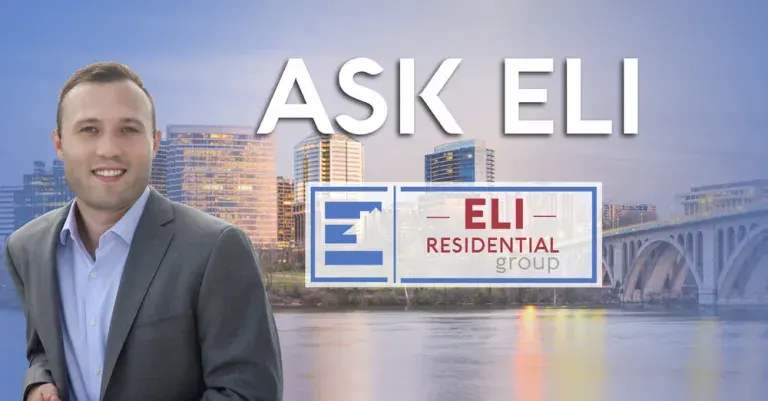Question: Why would anybody waste hundreds of dollars each month on condo fees?
Answer: I’ve seen a version of this statement/question numerous times in the comments section of my posts and I regularly have clients who are a great fit for a condo purchase, but rule it out because they consider condo fees to be a waste of money and bad investment.
The truth is that most people are looking at condo fees the wrong way and condos can offer huge financial advantages over a single-family home or townhouse.
Home Maintenance vs Condo Fees
Condo fees should mostly be bucketed in the same category as home maintenance and utility bills for a house/townhouse. The average condo fee for units sold in Arlington in 2018 is $484/month, which calculates to an annual fee of 1.3% of the average condo purchase price.
The nationwide rule of thumb is to expect home maintenance costs to be 1-2% of the cost of your home. The D.C. Metro has some of the highest labor costs and a large supply of older homes, so I generally recommend budgeting 2% of a home’s purchase price for annual maintenance.
The benefit of condos is that you are only responsible for the maintenance and repair of what sits inside the walls of your unit (plus a bit of plumbing outside of that) and possibly your heating & cooling system. Most condo fees also include utility costs like water, trash, sewer, and gas while some also include electric or TV, and internet.
When you compare the projected cost of condo fees, limited system maintenance (HVAC, water heater, appliances), and any individual utility costs against the projected costs of home maintenance and all utilities, you will almost always pay a lower annual percentage of your home’s value if you own a condo instead of a house/townhouse.
Predictable Expenses
Another under-appreciated financial benefit of condos is the ability to project your monthly housing expenses with a high level of confidence and stability.
With the majority of your maintenance and utility bills included in a fixed monthly fee, you have very little risk of taking on a major, unexpected expense. Your biggest financial exposure in a condo tends to be HVAC (est $3,000-$10,000), appliances ($2,500+ for a full package), and water heater ($1,000-$1,500) and you can purchase a renewable home warranty for $400-$600/yr to alleviate an expense spike caused by one of those systems.
On the other hand, the unpredictability of major maintenance, repair, or replacement costs in a house introduces another level of financial risk for homeowners, often forcing them to hold a substantially higher emergency savings balance.
Damage to your main water or gas line? Better come up with $10,000+ quickly and that doesn’t include rebuilding any landscaping or hardscape that gets torn up in the process. Big storm exposes a leaky roof and basement? Possibly tens of thousands to fix and replace.
For many homeowners, especially younger buyers with less savings and older homeowners on a fixed income, the benefits of stable, predictable condo expenses are a smart financial choice.
Evil Condo Boards
Another concern I hear about condos is that the notoriously evil condo Board/Management (kidding, I was the Treasurer for 1800 Wilson for a few years and have all the respect in the world for condo Board/Committee members) will increase fees or bring special assessments (one-time fee levied against all owners, on top of their condo fee) on a whim just to screw owners over for thousands of dollars. This simply is not accurate.
First and foremost, the Board members are also owners and pay the same fee increases and special assessments as the rest of the owners. Second, most Boards try to limit fee increases to 1-3% annually. Proof? The average condo fee in Arlington has increased by less than 10% over the last five years. Finally, special assessments are generally a measure of last resort and uncommon.
If you are concerned about fee increases and/or special assessments, I strongly encourage you to attend Board meetings and participate on the Financial or Building Committees or as a Board member to personally oversee your investment.
Conclusion
Just because this column is pro-condo does not mean it is an anti-single-family home/townhouse, but somebody had to stand up for the oft-bullied condo fee! I do hope this message reaches buyers who are a good fit for condos, but are hesitant to consider them because of misinformation about the fees.
If you are considering buying a home or investment property and would like to discuss what type of property makes the most sense for you, feel free to send me an email at [email protected].





